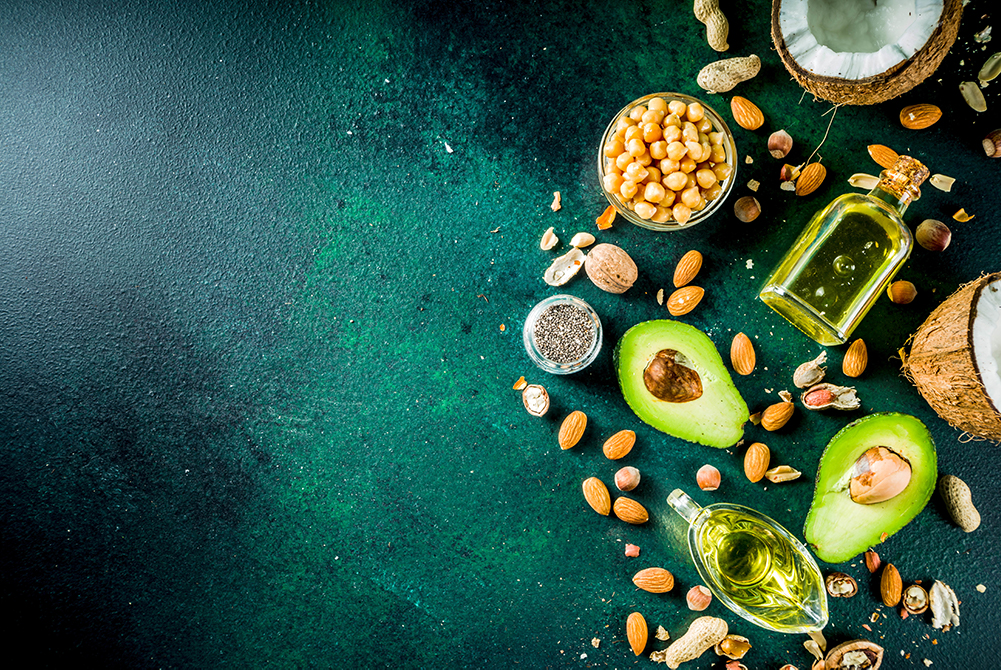
Myth 1: Eating fat makes you fat
The marketing message of low-fat products led to the demonizing of all fats. Yet, these “low-fat” products often replace fat with sugars to the detriment of your health. Studies show that replacing fats with sugar actually worsens cardiovascular risk. A fat-adapted body operates more efficiently, producing less metabolic waste and dips in energy.
Think of fat as a high octane fuel that creates less exhaust while simultaneously improving performance. People following the Keyto Program will lose weight while getting upwards of 70% of their calories from healthy fats. This fact alone proves that eating fish and plant-based fats does not make you fat.
Myth 2: You can only do keto if you’re okay with eating meat
With protein making up 20% of your daily diet, it’s easy to hit those numbers while staying vegetarian and even fully plant-based. Substitute low-carb tofu and tempeh for meats and coconut-based products (i.e. coconut milk, yogurt) in place of most dairy products. Many vegetables and nuts also contain protein, so meeting minimum requirements can be easily achieved. Some common examples include broccoli, asparagus, Brussels sprouts, walnuts, macadamia nuts, and pecans. Keyto even has a special plant-based option, which includes custom meal plans, recipes, and resources.
Myth 3: Going Keto means eat all the bacon you want
A core principle of the Keyto Program is to prioritize fats coming from plant and fish-based sources over animal fats. Some great sources of fat include avocados, olive oil, nuts, and salmon. By focusing on these types of foods, you can meet dietary fat goals while avoiding risks associated with high saturated fat intake. That doesn’t mean you can never eat bacon, but you should consider its impact if Heart Health is important to you.

Myth 4: You just have to keep carbs low
Sometimes when people cut carbs, they replace those calories with extra protein. Excess protein can be converted into sugars that may lower the Keyto Levels or bump you out of ketosis. Aim to get roughly 70-110 grams of protein per day depending upon your weight and activity. This amount of protein is sufficient to maintain muscle mass and optimize health for most people. The easiest thing to do is just not change your typical protein intake you ate before starting the program. Keep your portions of salmon or chicken or tofu just as they were.
Myth 5. Keto is something new
Ketosis is a conserved evolutionary pathway that protects us against famine. It not only helps us survive but also thrive when food is not available on a daily basis. Historically, hunter-gatherer tribes would consume fat before a hunt to achieve peak mental and physical performance.
The ketogenic diet is also documented in scientific literature with the first publications dating back to the 1700’s. Parisian physicians used it to treat epilepsy in the early 1900s. More recently, millions of people have used the ketogenic diet to lose weight and improve health. So while ketosis may appear to be something new, it has a long and storied history.

